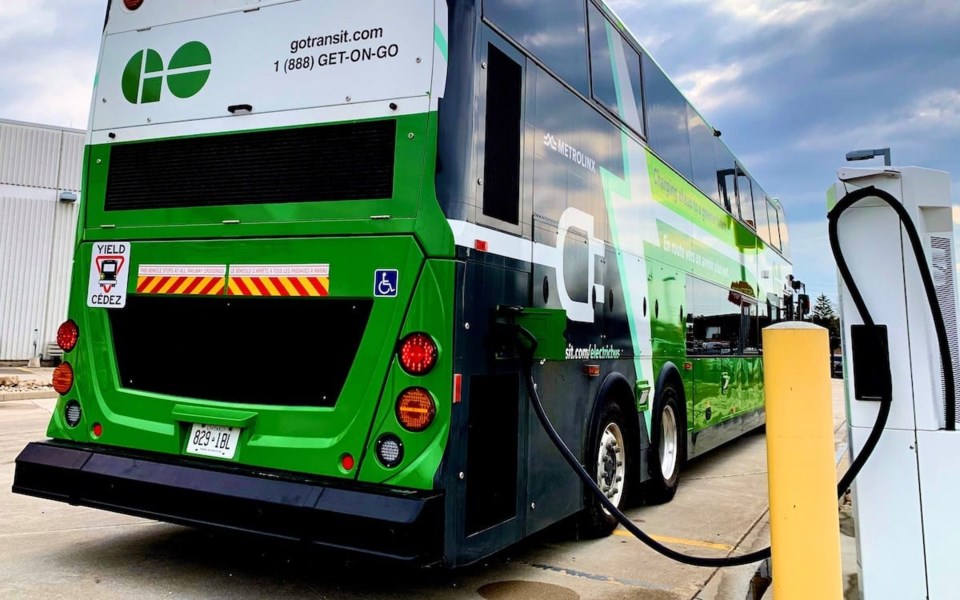The north star for Greater Sudbury Transit Services is still an entirely electric fleet of 59 conventional buses by 2035.
GOVA Transit doesn't currently have any electric buses.
City Transit Services director Brendain Adair said he anticipates tabling a Battery Electric Bus Feasibility Study and Fleet Transitional Plan with city council by the end of the year.
“It is a very comprehensive plan that informs everything from route modeling to recommended infrastructure plans,” he said, adding that it will include a proposal for the project’s entire rollout.
“You can anticipate a strategy that would bring phases of buses in,” he said. “We’ve got 59 buses, so the infrastructure to charge those is significant. We want to make sure the things we put in from a charging standpoint also align with grid capacity and meet the needs of our service level.”
The plan is anticipated to roll out over a 10-year period, which will bring it to the Community Energy and Emissions Plan 2035 deadline for a fully electric fleet.
The project includes the city’s fleet of conventional buses, with GOVA Plus specialized transit services contracted out. Adair said the city would be working with them to ensure their vehicles are also electric.
Earlier this week, Metrolinx announced a new deal with ABB E-Mobility to provide battery charging systems with seven transit agencies across Ontario, including Greater Sudbury.
Metrolinx is an agency of the Government of Ontario created in 2006 to co-ordinate transportation services in the province, and uses bulk-buying to get municipalities lower prices.
Greater Sudbury has already secured diesel buses through Metrolinx, secured the Battery Electric Bus Feasibility Study and Fleet Transitional Plan contract through the agency and plans on using Metrolinx to secure both electric buses and whatever associated charging infrastructure is required.
“We know that through Metrolinx’s buying power that we’re getting great pricing that we’re comfortable with,” Adair said. “It’s been a time-saver and money-saver.
“Our participation with Metrolinx’s procurement allows us some efficiency when we talk about ordering buses, and prior to that ensuring proper chargers and the timeline to put procurements like that together.”
Parallel to the city’s work on a Battery Electric Bus Feasibility Study and Fleet Transitional Plan is a municipal review of the city’s three main transit mobility hubs, including the Downtown, New Sudbury and South End sites.
These two reports are “separate but related,” Adair said, adding that whatever transit hub plan the city goes with must be able to accommodate the city’s upcoming fleet of electric buses. He didn’t have a timeline for the transit hub report’s release, but said it’d be “wrapping up shortly.”
Tyler Clarke covers city hall and political affairs for Sudbury.com.
